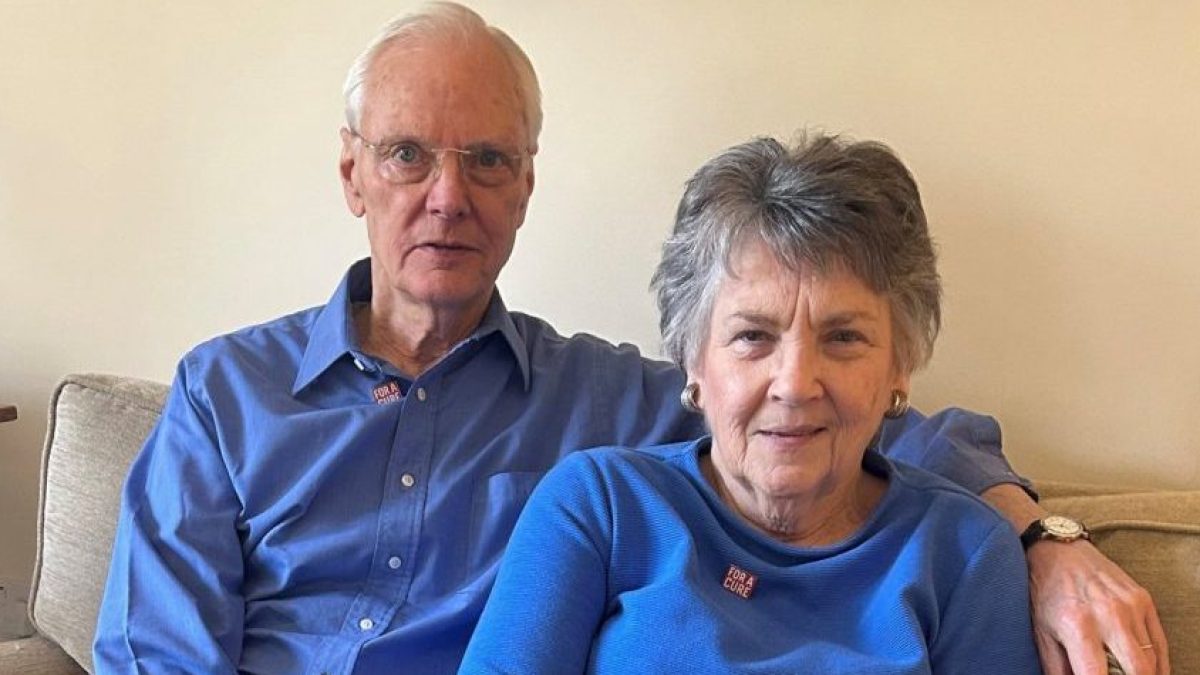Larry Woelk is one of only a few people in the UK who have had access to lecanemab via a clinical trial
Retired business executive Larry Woelk has been a long-term participant in the trial for Alzheimer’s drug lecanemab, having received it for around five years.
The 78-year-old, originally from Dodge City, Kansas, lives in North Hampshire with his wife Rita. He was diagnosed with mild cognitive impairment in 2018 after having problems with his memory and difficulties absorbing information.
He joined the first trial for lecanemab in 2020 and then went onto the extended trial, receiving the drug every two weeks via an IV infusion.
New FeatureIn ShortQuick Stories. Same trusted journalism.
Larry – who met his wife in Boston in 1970 while they worked in the same hospital – is one of just a few people in the UK who have had access to lecanemab via a clinical trial, which he is due to complete at the end of this year.
The couple are supporters of Alzheimer’s Research UK and believe the drug has helped to slow the progression of his symptoms. He has not suffered any side-effects.
Larry, who moved to the UK in 1977, said: “Everyone when they get old forgets things, like why did you go into that room or what channel is that show on. But my memory had slipped a little bit more than normal.
“On lecanemab it hasn’t slipped a lot further. I take memory tests every six months and those really haven’t changed in the time I’ve been on the trial.”
Lecanemab was given a UK licence last year but was not approved for use on the NHS by the spending watchdog, the National Institute for Health and Care Excellence (Nice), which deemed the drug not cost-effective.
Now a group of 40 experts has warned that the NHS is not ready for a new era of diagnosing and treating Alzheimer’s disease and is not “keeping pace with the science”.
Rita said: “We feel fortunate that Larry’s diagnosis came so early and got us on this journey at a time when he could be helped. And we feel fortunate that he has received a drug that is beneficial.
“There has been some decline, but it has been gradual and subtle. He is still able to live a full life. He is able to go out on bike rides, play mahjong and socialise. But we know our situation is not the case for everyone who has Alzheimer’s.
“We hope that now there are treatments that are proven to slow down this disease, it will bring Alzheimer’s out of the shadows. We hope it will encourage people when they first notice a problem to seek help and get a diagnosis.”
The couple were keen for Larry to volunteer for drug trials as their son, Christopher, works in biomedical research. For around 10 years he worked in HIV research, which has seen huge breakthroughs in new treatments.
About one million people in the UK are living with dementia, of which Alzheimer’s is the most common form, and this is projected to rise to 1.4 million in 2040.
Larry said: “One of the things with a clinical trial is that you never know what the outcome is going to be, and sometimes there’s no real benefit or outcome at all. But with this trial I feel I have quite benefited.”
Rita said: “I think to contribute to any drug trial is a gift to research. Not every drug trial is going to be beneficial, but every trial will tell the researchers something about that drug and help move things forward.
“There are many people in the future who will have this disease. So, the sooner we get to a cure the better. The more drug trials that are run, the more people who partake, the faster we will get there.”

